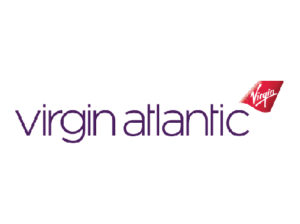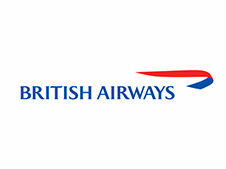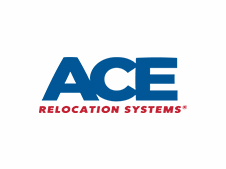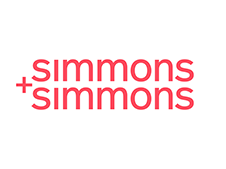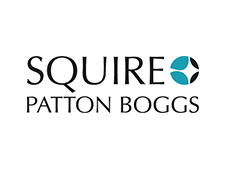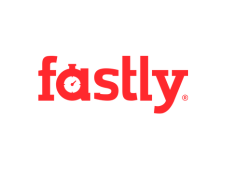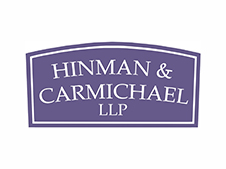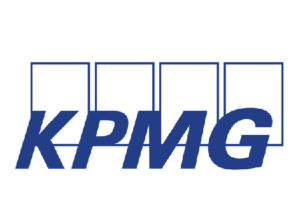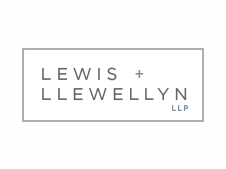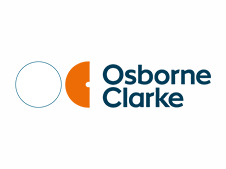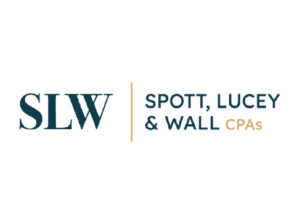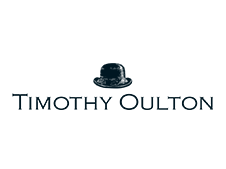In a huge victory for common sense interpretation of the law and a reaffirmation of reasonableness by the California ABC Appeals Board, several decisions in favor of wineries (Hinman & Carmichael LLP clients) who participated in the 2013 BottleRock festival have clarified the muddy waters of tied-house issues in California. The ABC Appeals Board’s opinions reversing findings of violations of ABC statutes relating to indirect ownership of retail licenses and sponsorships of festivals, and the exchange of goods for promotional consideration, pave the way for a more rational ABC approach to the tied-house laws in the future.
THE 2013 FESTIVAL AND THE ABC – THE BACKSTORY
In 2013 a group of promoters in Napa invented the music festival known as BottleRock. BottleRock Festivals LLC (BRF) signed up wineries from Napa and Sonoma (as well as a major brewer) as sponsors. The festival featured three days of music and wineries presenting their wines to festival attendees in tents at the Napa Valley Fairgrounds. Before the festival the BRF promoters met with the ABC and showed ABC the sponsorship contracts (which provided for venues for after-parties, including the Uptown Theatre; wine being contributed to the artist’s gift bags for promotional purposes; wine being contributed for charitable auction donations in connection with the event; as well as generous ticket packages and hospitality tents for the sponsors). BRF booked the acts, publicized the festival and worked with a caterer to have wine poured in the hospitality tents under a permit issued by the ABC, which the sponsoring wineries considered to be ABC approval of the event.
Almost immediately after the 2013 festival concluded, BRF had financial problems and declared bankruptcy. About that time an ABC investigator trolling the internet came across a story that connected the BRF principals to the Uptown Theatre through a real estate investment trust that owned a minority (21%) interest in the LLC that owned the Uptown (this is called an indirect ownership interest). None of the wineries knew any details about the interest of the promoters in the Uptown, and the chain of indirect ownership could not have been discovered had someone using the ABC public records looked up the Uptown’s ownership. That is because only direct ownership interests show up on the ABC public databases.
“Gotcha” declared the investigator! This, he concluded, was all the ABC needed to bring a case against ALL of the producer-licensed sponsors. He theorized that, because the “after-parties” were at the Uptown (a licensed venue) and BRF revenue (which may or may not have come from sponsorship funds from the wineries; no one could prove this one way or another) was used to pay for those parties, the wineries had indirectly provided a “thing of value” to the Uptown in violation of the tied house laws. The ABC filed the accusations on that theory.
THE ABC ACCUSATIONS, THE HEARINGS AND THE APPEAL DISMISSING THE ACCUSATION
Of the approximately two dozen wineries and other suppliers indicted by the ABC in 2014, most settled for a fine, a license suspension for 10 to 15 days or probation for a year. However, many wineries felt they had done nothing wrong and were determined to defend themselves. These wineries went to hearings at which the allegations in the accusations were challenged. There was no substantive dispute over the facts; the real dispute was over the legal standards to apply to the facts. The result after the hearing (the ABC Director was the decision maker) was a conviction based on the ABC’s legal theory that neither knowledge of a tied relationship, nor intent to violate the law via that relationship, was necessary to finding a violation.
Our clients appealed to the ABC Appeals Board, which has jurisdiction over the ABC and the power to reverse ABC decisions. The reversals by the Appeals Board sent a clear message to the ABC.The most important result from these cases is the publication of a refined standard of conduct that will now be required for the ABC to find a licensee guilty of a tied house violation related to a thing of value.The lessons from these cases will benefit every licensee in this state.
Just as important (and perhaps more important from a day to day operational perspective), the Appeals Board specifically found that alcoholic beverages bartered for promotional consideration (specifically, the wine provided for the artists in their gift bags) do not violate the Section 25600 prohibition on “premiums, gifts or free goods.” This provides enormous relief to those wineries who use wine for trade, provide wine to wine writers and who provide wine to events in return for promotional consideration. The board found that “promotional consideration” was in fact “consideration” and nothing had been given away for free.
While this application of the California Civil Code definition of “consideration” to the ABC Act prohibitions is heartening, licensees are cautioned that use of this privilege requires careful adherence to proper invoicing and bookkeeping procedures. The BottleRock festival (under different promoters) proceeded in 2014 and 2015 (and will soon happen again in 2016) under the aegis of special legislation applying to the festival itself and to the Napa Fairgrounds. Unfortunately that legislation does not apply to other music festivals in other places in the state. However, because ABC Appeals Board decisions do apply throughout the state we can safely say that the music now lives!
WHY THE ACCUSATIONS WERE DISMISSED
The Appeals Board, after performing a statutory analysis of the claimed ABC theory of criminality, essentially said “nonsense.” The Appeals Board said that the “directly or indirectly” standard (at least in the context of the Section 25500(a)(2) “thing of value” section) does not apply to the “ownership” of the retail venue but rather to the “inducement” (or “thing of value”) actually provided by the supplier to the retail account for the purpose of inducing the retail account’s purchase of the supplier’s product. While legalistic, this is a critical distinction for guidance of future conduct. Basically this means that the important factor is the nature and purpose of the inducement, not the nature of the ownership or investment interests.
In the context of these cases the lesson was clear – you can’t have a “thing of value” violation based solely on indirect ownership connections.
THERE MUST BE A CONNECTION BETWEEN THE INDUCEMENT AND THE SUPPLIER
In the BottleRock cases there was no intent on the part of the defendant wineries to program their brands into the Uptown, the purportedly “tied” retail account. In fact, most of them didn’t even sell wine to the Uptown, and none of them attended the after-parties there. This was consistent with the finding of the Schiefflin case where the supplier was found guilty because it paid money to a promotional company that underwrote retailer expenses to curry favor with the retailer. That was an example of inducing the retailer to purchase the supplier’s products because the retailer received a thing of value from a third party.
The result is that any “thing of value” charge against a winery (or a retailer, both are liable) from now on must include a clear connection between the supplier, the thing of value and the retailer as well as a benefit to the retailer connected to the suppliers brand being promoted in the retail account. The government must also show some evidence of a corrupt intent. Put more positively, the Appeals Board will not countenance “Gotcha” prosecutions based upon facts that were unknown to, and unknowable by, the licensee. This negates any intent to violate the statute. While licensees no longer need to fear prosecutions based on unknowable facts, it is nonetheless always prudent to do a due diligence on those with whom the licensee does business.
This conclusion comports with the corruption-based cases currently rocking the industry. In Massachusetts the Craft Brewer’s Guild just paid $2.6 million to avoid a 90 day shutdown for bribing on-premises accounts to get tap handles. And in Ohio the Kroger’s/Southern initiative requiring suppliers who wanted to get their wines into Kroger’s to pay 3% of total sales to a marketing company furnishing services to Kroger’s was recently determined by Ohio to be a violation of its tied house laws. In both of those instances the intent of the suppliers is to benefit a retail account for the direct purpose of inducing the retailer to carry their brands. Intent to induce is now clearly required for a violation to be found in California. That comports with federal law, and the law of most other states.
THE FIRST AMENDMENT DEFENSE:
WHAT THE BOARD SAID BY NOT GOING THERE
Perhaps the most interesting facet of the decisions was the way the Appeals Board dealt with the First Amendment defense. The defendants asserted a First Amendment defense because participation in the BottleRock festival was indisputably commercial speech protected by the First Amendment, as we have explained in previous posts [Commercial Speech & Alcoholic Beverages – Part I, Part II, Part III and The Grapes Escaped – Why The First Amendment Matters]. The courts have been applying increasingly rigorous standards to curb governmental restrictions on commercial speech, the most recent being the January 2016 Retail Digital Network (RDN) case. The Appeals Board noted that, because it found for the defendants on the basis of the ABC’s failure to meet the statutory requirements for liability (as discussed above), it did not need to address the First Amendment issues. The Board nonetheless went on to devote over a page to RDN. RDN is still an active case with potential appeals or a remand for a district court trial on the merits looming. We will report on these developments as they occur.
In RDN the 9th Circuit overruled the 1986 9th Circuit Actmedia case, which prohibited a supplier from paying a retailer to advertise in retail premises. Up to now, Actmedia has been the standard used to gauge tied house liability for paying retailers for advertising. RDN placed screens in retail accounts carrying basic content as well as supplier advertising, and paid the retailers to put up the screens up. The ABC considered this to be a basic tied house violation (indirect payment of money to a retail account by a beverage supplier). The 9th Circuit found that this was commercial free speech and the ABC had to meet a “heightened” standard of scrutiny under recent Supreme Court precedent in order to punish this conduct.
This quote from the Retail Digital Network case was cited by the Appeals Board in their discussion of the decision. Judge for yourself what this says about how the Appeals Board thinks tied house policy in the real world should be evaluated:
“While California has a legitimate interest in preventing the ills associated with tied-house arrangements, statements in the Retail Digital Network opinion denote skepticism about the Department’s apparent “all-or-nothing” application and enforcement of the tied-house statutes and invite legislative reexamination of the tied- house laws: ‘While we ‘hesitate to disagree with the accumulated, common-sense judgments of [the] lawmakers’ who enacted [the tied-house statutes], we cannot say on the record before us that the State’s Prohibition-era concern about advertising payments leading to vertical and horizontal integration, and thus leading to other social ills, remains an actual problem in need of solving.’” (Retail Digital Network, 9th Cir. 2016, 810 F.3d 638).
THERE ARE MANY LESSONS IN THESE CASES – HERE ARE A FEW.
- Lesson 1: Do your homework. Before engaging in activities involving sponsorship requests find out exactly who is involved, who the money is going to and what it is paying for. Always follow the money.
- Lesson 2: Have a good sponsorship agreement with clear terms. This is critical because the agreement should specify who the money is going to, what it is being used for and contain representations and warranties related to the promoters as well as any retailers also involved in the event.
- Lesson 3: Question the promoters. Find out how much experience they have and make sure that you are comfortable with their plans for the event and their use of the sponsorship funds.
- Lesson 4: Use invoices for promotional trades of wine. Keep your books properly because the value of the wine that is being used for promotion is part of the cost of that promotion.
- Lesson 5: Don’t deliver wine to a caterer on a Sunday. (This 1935 law was cited in one of the accusations, really!). Wine can be picked up by a caterer on a Sunday but not delivered.
The cases were tried by John Hinman and Rebecca Stamey-White. John, Rebecca and John Edwards worked on the briefs. Rebecca argued all of the cases before the ABC Appeals Board.


